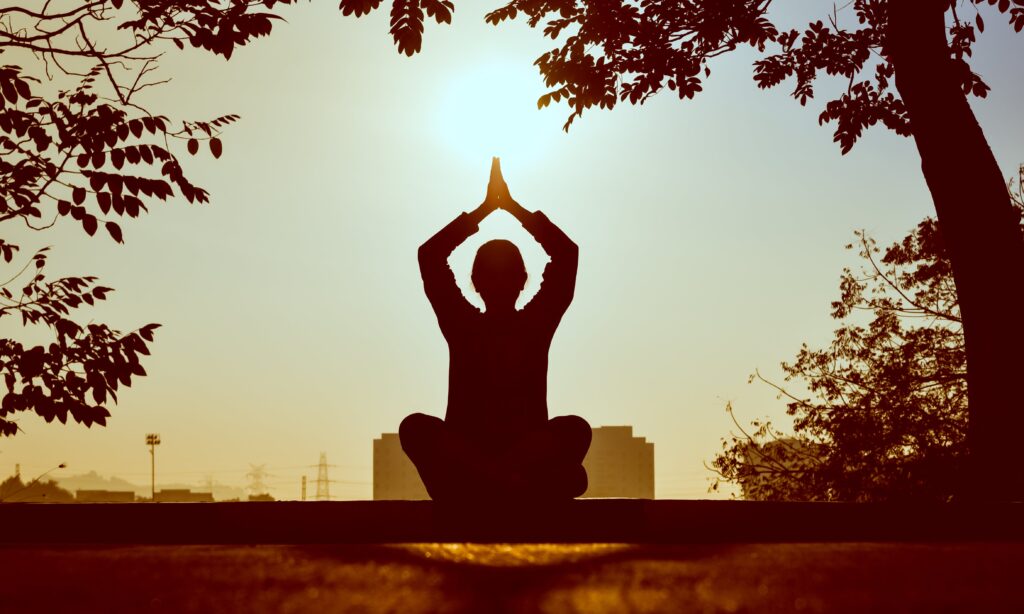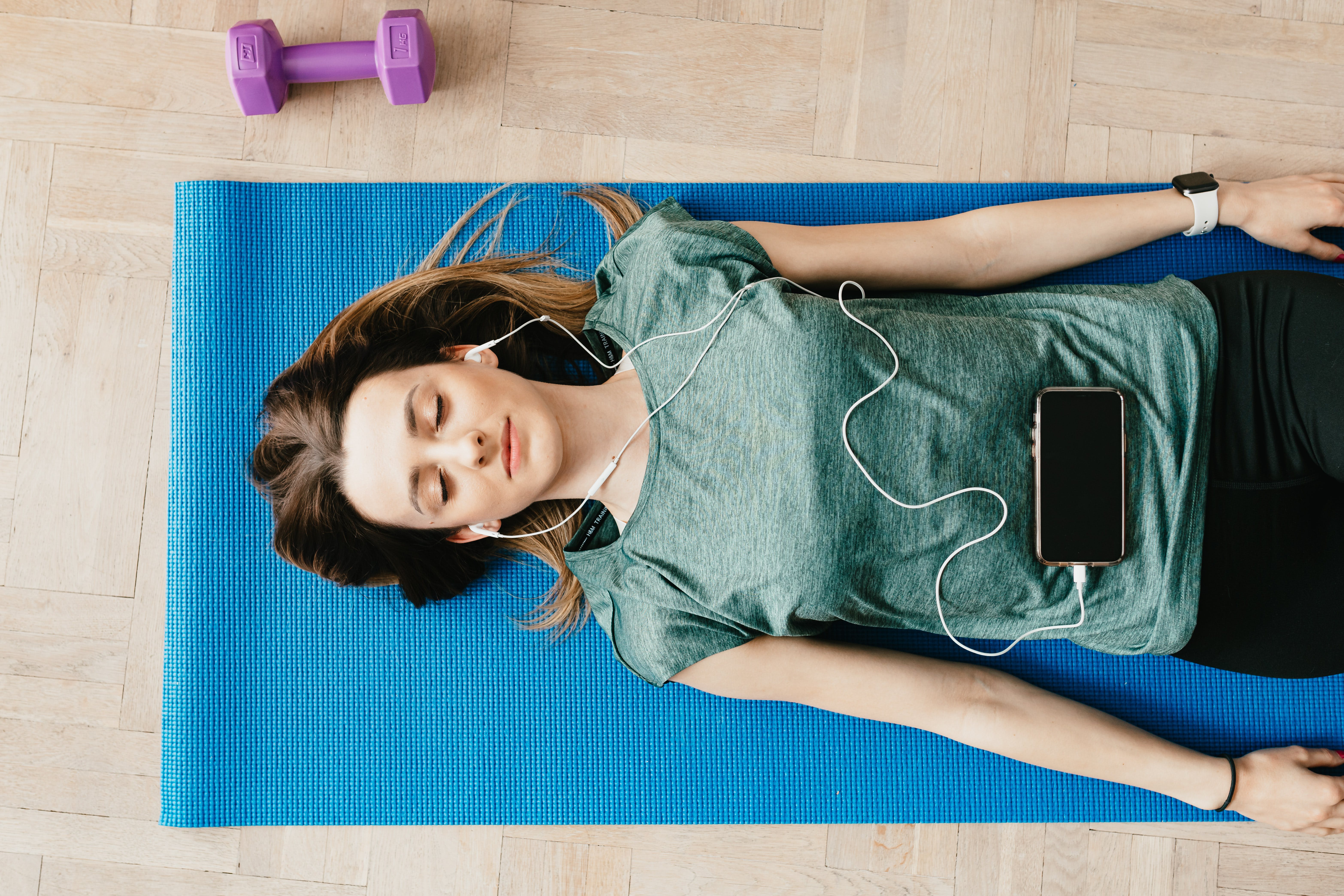Table of Contents
Introduction
The way we are progressing in this world revolutionized by technology, we can see how busy people have become with work and managing things. In a world where a mind full of distractions and demands of daily life often pull us into dilemmas, there exists a profound need for excelling calmness and stillness within our minds, which we call mindfulness. This concept is not only meant for monks, it is an accessible art that holds the potential to transform the way we experience life.
Mindfulness means living in the present moment. Essentially, it means being (intentionally) more aware and awake to each moment and fully engaging in one’s surroundings. It is not just sitting cross-legged or chanting mantras under the soft glow of incense. It is a way of being fully present and engaged in the current moment, regardless of whether it is filled with peace or chaos. It is an invitation to savor life’s simple pleasures, navigate the challenges gracefully, and cultivate a deep sense of inner peace and fulfillment.
In this article, you will learn about mindfulness, its benefits, its impact, how meditation is interlinked with it, and many more. Join us as we delve into this beautiful art of being mindful – a path that leads to self-discovery and a connection with the world around us.
On the other hand, meditation is a specific mental practice that can serve as an important element of mindfulness. It involves focusing your attention and eliminating the thoughts that may crowd your mind. It is a technique for relaxing the mind and developing inner peace to become mindful. We create a sacred space through meditation to observe our thoughts, feelings, and sensations with non-judgmentalness.

So, as we have just learned what mindfulness and meditation are, you may think about their uses in our lives, right?
Why do We have to be Mindful?
- Stress reduction: Mindfulness has been said to reduce stress by lowering the production of stress hormones like cortisol. When you practice mindfulness, you become better at managing and responding to stressors calmly and composedly.
- Enhanced emotional regulation: Mindfulness helps individuals become more aware of their emotions without reacting impulsively. Increased emotional awareness can lead to better emotional regulation and greater emotional resilience.
- Pain management: Mindfulness-based techniques have effectively managed pain conditions. By changing your relationship with pain and increasing pain tolerance, you can reduce pain perception.
- Greater life satisfaction: Mindfulness can ultimately lead to a greater sense of overall well-being. You can lead a more fulfilling life by appreciating the present moment and finding joy in everyday experiences.
- Enhanced creativity: Mindfulness can boost creativity by allowing your mind to freely explore ideas and connections without judgement.
How can We practice Mindfulness in our Daily Life?
Practicing mindfulness in daily life involves bringing your attention and awareness to what you are doing in the present moment. It can be a powerful way to reduce stress and increase self-awareness. Here are some tips to help you gain mindfulness in your daily routine:
- Start with a morning routine: Begin your day mindfully. Instead of rushing to your morning routine, pay attention to the sensations of brushing your teeth, showering or preparing breakfast. Start your day with intention.
- Mindful breathing: Take a few moments to focus on your breath throughout the day. Close your eyes and take a few deep, conscious breaths. Notice the rise and fall of your chest or the sensation of the breath entering and leaving your nostrils.
- Mindful eating: When you eat, sense each bite. Pay attention to the taste, texture, and aroma of your food. Chew slowly and fully experience each mouthful. Avoid distractions like smartphones or TV while eating.
- Mindful work: Approach your work task with mindfulness. Focus on one task at a time, fully engaging your attention in the present moment. When you catch your mind wandering, gently bring it back to the task.
- Mindful listening: Practice active listening when someone is talking to you. Give them your full attention without interrupting or thinking about your response. Try to understand their perspective without judgment.
- Mindful technology use: Be mindful of your technology usage. Avoid mindlessly scrolling through social media or constantly checking emails. Set specific times for those activities, and be present when you engage with the technology.
- Gratitude practice: Develop a gratitude practice by taking a moment to appreciate the positive aspects of your life. Reflect on what you’re thankful for, whether a simple pleasure or a significant achievement.
Mindfulness is a skill that develops with practice. Be patient with yourself and approach each moment with an open and non-judgmental attitude.

What are the Benefits of Meditation?
- Better sleep: It can improve sleep quality by calming the mind and reducing racing thoughts. Individuals who practice it often report falling asleep more easily and experiencing deeper, more restful sleep.
- Focus and concentration: It can sharpen concentration or cognitive skills like attention and memory. This is particularly beneficial in our busy world where distractions are common.
- Lower blood pressure: It can reduce blood pressure, which is important for heart health. It may help prevent hypertension and reduce the risk of heart disease.
How to start Meditation?
Find a quiet space: Choose a quiet and comfortable place where you won’t be disturbed. Depending on your preference, you can sit on a chair, cushion, or even lie down. The key is to find a posture that allows you to be alert and relaxed.
Set a time: Decide how long you want to meditate. Beginners might want to start with just 5-10 minutes and gradually increase the duration as they become more comfortable with the practices.
Choose a technique: There are many techniques to choose from.
- Mindfulness: Focus on your breath, bodily sensations, or a specific object or sound. When thoughts arise, gently bring your attention to your chosen focal point.
- Transcendental: Use a specific mantra or word to repeat silently. This helps calm the mind and create a sense of inner stillness.
- Loving-kindness (metta): Cultivate feelings of love and compassion by repeating positive phrases for yourself and others.
- Body scan: Gradually shift your attention through different parts of your body, relaxing and releasing tension as you go.
- Guided: Listen to a recorded meditation led by a teacher or use meditation apps that offer guided sessions.
Focus on your breath: A simple focus on your breath can be very effective if you’re unsure where to start. Close your eyes and pay attention to your breath as it goes in and out. Notice the sensation of the breath in your nostrils and chest. When your mind wanders, gently bring focus to your chosen point of attention.

Be patient: It’s common for your mind to wander during meditation. Don’t get frustrated; this is a natural part of the process. Instead, acknowledge the thoughts, let them go, and return your focus to your chosen point of attention.
Practice regularly: Consistency is the key. Try to meditate at the same time each day, whether in the morning, during lunch break, or before bed. The more you practice, the more you will benefit from it.
Start gradually: If you’re new to it, don’t push yourself too hard. Begin with short sessions and gradually increase the duration as you become more comfortable with the practice.
Remember that meditation is a skill that takes time to develop. Be patient with yourself and approach it with an open and non-judgmental attitude. Incorporating mindfulness into your daily life through formal meditating sessions and informal practices, such as mindful breathing and mindful eating, can help you cultivate these benefits over time. It’s important to remember that mindfulness is a skill that can be developed with practice. Through mindfulness and meditation, we can awaken to the beauty of the present moment and unlock the transformative power it holds for our overall well-being.
Want to plan your career effectively and grow exponentially in your career, Click here to Book your FREE Consultation Call with our Head Mentor
In case, if you feel that we have missed something important in this article and need to be included for its betterment, feel free to share your suggestions with us through comments or mail us at rudrasupport@gyaannirudra.com.
Stay connected with us to be aware of the different career or business opportunities in other fields as well.
Wishing you all a splendid and exponentially growing career journey ahead.

This is Siri Kasireddy. I am pursuing a bachelor’s degree in commerce with business analytics. I am a nature enthusiast who loves to explore new things and people. I am good at writing poems and drawing. I wish you all happy learning and new discoveries through Gyaannirudra.

